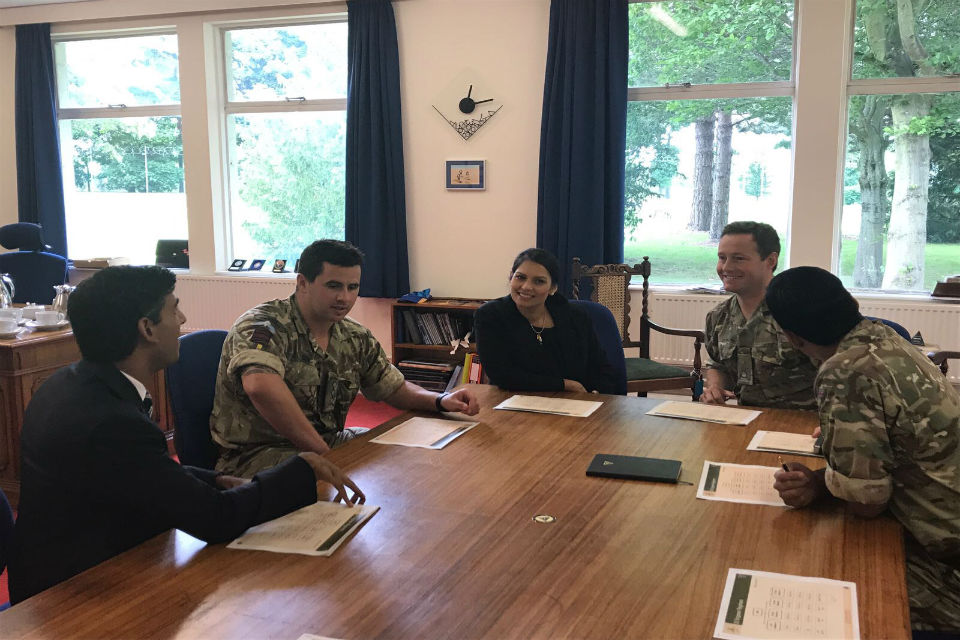News story: International Development Secretary visits Catterick Garrison
Priti Patel visited members of 32 Engineer Regiment today, as they prepare to deploy in support of the UN Peacekeeping mission in South Sudan.
The deployment of 162 British personnel from Catterick Garrison in Yorkshire will increase the number of UK military in South Sudan to approximately 400.
These troops are primarily split between Malakal and Bentiu in the north of South Sudan, where they are providing engineering and medical support at UN camps and helping to develop logistical routes to improve the delivery of humanitarian aid, a vital task in a country where movement by road is virtually impossible due to a lack of infrastructure.
International Development Secretary Priti Patel said:
The brave members of our Armed Forces are a credit to our country and ahead of their deployment to the UN peacekeeping mission to save lives in South Sudan, I’m delighted to have met men and women from 32 Engineer Regiment.
The situation on the ground in South Sudan is catastrophic and a man-made disaster. Conflict and instability has led to grotesque levels of violence and persecution, and Britain is leading the way in providing life-saving and emergency food, water and medicine to those in need.
The engineering and medical expertise of our deployed British soldiers will make a real difference, bringing skills that the UN desperately needs to protect innocent people in this terrible conflict.
Britain can stand tall in the world, with the dedication of our Armed Forces helping to save lives, rebuild South Sudan and bringing stability and peace to the people who live there.

In South Sudan, 6 million people face the daily reality of going without enough food and water and nearly 4 million people have been forced from their homes because of ruthless violence and widespread sexual assault.
The International Development Secretary visited South Sudan in April to urge parties to the conflict stop the spiral of violence, end the atrocious human rights abuses and allow urgently needed aid to reach those in need. This followed intense fighting between Government and opposition forces and restrictions on access for humanitarian organisations trying to deliver lifesaving supplies.
The UK is the second largest bilateral provider of lifesaving humanitarian assistance in South Sudan and is the leading provider of health and education services. This year the UK will provide 500,000 people with food, safe drinking water for more than 300,000 people, and with other donors is providing nutritional supplements to over 100,000 children and pregnant women.
Notes to Editors
- The UK was one of the first major donors to respond to the UN’s appeal to South Sudan – pledging less than 24 hours after the appeal was launched – and we are leading the way by making sure millions of people in South Sudan get urgently needed food, water and medicine, as well as longer term support to provide much-needed education.
- We are providing £100 million of humanitarian assistance to South Sudan this year. This will provide food for over 500,000 people, safe drinking water for over 300,000 people, emergency health services for over 100,000 people and support for 650,000 people to build their livelihoods.
- The UK has also matched £10 million of the public donations to the DEC’s East Africa appeal which has raised £60 million since its launch.
- Over half a million new refugees arrived in Uganda in 2016, 88% of them from South Sudan – more than crossed the Mediterranean into Europe. Around 2,200 arrive each day. There are now nearly 1 million South Sudanese Refugees in Uganda.